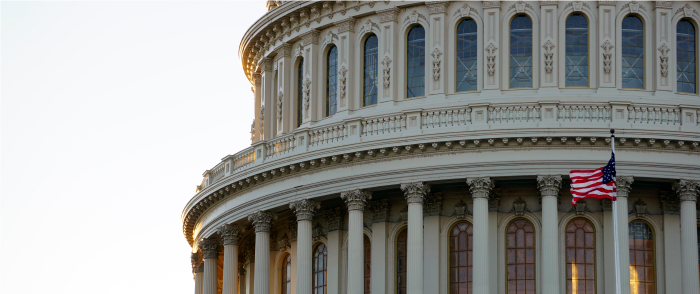Winter 2021 HR Compliance Calendar

Below is a summary of compliance requirements that took effect recently or will take effect soon.
January 1,2021
This chart covers January 1, 2021 minimum wage increases for all applicable states and some larger U.S. cities. Some states increase their minimum wage rates mid-year or on a different cycle. The information below applies to January 1, 2021 increases only (Note: New York increases their minimum wage on December 31).
Local minimum wage increases:
Several cities are also increasing their minimum wage effective January 1, 2021. Some of these include:
| Jurisdiction | Minimum wage rate January 1, 2021 |
| Flagstaff, AZ | $15 |
| Belmont, CA | $15.90 |
| Burlingame, CA | $15 |
| Cupertino, CA | $15.65 |
| Daly City, CA | $15 |
| El Cerrito, CA | $15.61 |
| Half Moon Bay, CA | $15 |
| Hayward, CA | $14 (25 or fewer employees) $15 (26 or more employees) |
| Los Altos, CA | $15.65 |
| Menlo Park, CA | $15.25 |
| Mountain View, CA | $16.30 |
| Novato, CA |
$14 (1-25 employees) |
| Oakland, CA | $14.36 |
| Palo Alto, CA | $15.65 |
| Petaluma, CA | $15.20 |
| Redwood City, CA | $15.62 |
| Richmond, CA |
$15.21 (general) Note: Under city law, employers that contribute at least a certain amount towards an employee medical benefits plan may be able to take a limited credit toward the minimum wage. Remember, employers must also comply with the state minimum wage. If the state minimum wage is higher than the applicable city rate with the credit, employers must pay at least the state minimum wage. |
| San Carlos, CA | $15.24 |
| San Diego, CA | $14 |
| San Jose, CA | $15.45 |
| San Mateo, CA | $15.62 |
| Santa Clara, CA | $15.65 |
| Santa Rosa, CA | $15.20 |
| Sonoma, CA |
$14 (25 employees or less) Note: Under city law, employers that contribute at least a certain amount towards an employee medical benefits plan may be able to take a limited credit toward the minimum wage in 2021. Remember, employers must also comply with the state minimum wage. If the state minimum wage is higher than the applicable city rate with the credit, employers must pay at least the state minimum wage. |
| South San Francisco, CA | $15.24 |
| Sunnyvale, CA | $16.30 |
| Denver, CO | $14.77 |
| Portland, ME | $12.15 |
| Albuquerque, NM | $10.50 $9.50 (if not covered by state minimum wage and employer provides healthcare and/or childcare benefits of at least $2,500 per employee per year) |
| Las Cruces, NM | $10.50 |
| SeaTac, WA | $16.57 |
| Seattle, WA |
$16.69 $15 (if employer has 1-500 employees and provides $1.69/hour in medical benefits/tips)
|
This is not an exhaustive list. There may be additional local jurisdictions that have scheduled increases for January 1. Check your local laws to confirm compliance.
March 1, 2021
- EEO-1 reporting due. The EEOC will collect employer EEO-1 data for both 2019 and 2020 in March 2021.
March 8, 2021
- DOL adopts new independent contractor test. The DOL has published a final rule that will change the test for determining whether a worker is an employee or independent contractor under the Fair Labor Standards Act (FLSA). Note: Other laws have different tests to determine whether a worker is an independent contractor, and some states have their own independent contractor tests. Before classifying and treating any individual as an independent contractor, perform all applicable tests.
January 1, 2021
- California expands family leave law. The California Family Rights Act (CFRA) has been expanded to, among other things, cover employers with five or more employees (previously, the law applied to employers with 50 or more employees). The expanded law also makes it easier for employees to qualify for CFRA leave, covers additional types of absences, allows employees to take leave to care for more family members, and gives parents who work for the same employer additional rights. For more information, view our recorded CFRA webcast here.
- California clarifies kin care law. California clarifies that for the purposes of an employee's use of accrued sick leave, it's at the employee's sole discretion as to whether to designate the leave as sick leave for themselves or for their family members (kin care).
- California harassment prevention training due. Employers with five or more employees must provide at least two hours of sexual harassment training to all supervisory employees and at least one hour of sexual harassment training to all nonsupervisory employees. Training is also required every two years thereafter.
- California requires written notice of potential COVID-19 exposure. Employers must provide written notice to employees who may have been exposed to COVID-19 at their worksite, as well as information about COVID-19-related benefits, such as workers' compensation, COVID-19-related leave, company sick leave, state-mandated leave, and supplemental sick leave.
- California expands protections for crime victims. The law expands the state's domestic violence leave protections to an employee and certain family members who are victims of a crime.
- California raises minimum salary requirements. The minimum salary required for the administrative, professional, and executive overtime exemptions and the amounts employers must pay computer software employees and physicians increased.
- California expands human trafficking training requirements. Businesses that operate an intercity passenger rail, light rail, or bus station must provide at least 20 minutes of training to employees who may interact with, or encounter, a victim of human trafficking (previously, this requirement applied to hotels and motels).
- California assigns certain HR employees as mandatory reporters. Human resource employees who work for a business with five or more employees that employs minors must adhere to mandatory child abuse and neglect reporting.
March 31, 2021
- California requires pay data reporting by certain employers. Covered employers must provide the California Department of Fair Employment and Housing with pay data by specified job categories and by race, ethnicity, and sex on an annual basis.
January 1, 2021
- Colorado requires paid sick and public health emergency leave. The state's paid sick leave requirement for employers with 16 or more employees takes effect (employers with 15 or fewer employees have until January 1, 2022, to comply). Paid sick leave must accrue at a rate of at least one hour for every 30 hours worked, up to a maximum of 48 hours. However, during a public health emergency (as is the case with the COVID-19 pandemic), all Colorado employers must provide employees who normally work 40 hours in a week with a one-time supplemental number of hours which, when added to the paid sick leave the employee has already accrued for the year, will provide them with access to 80 hours of total paid leave.
- Colorado expands equal pay protections. Expanded equal pay protections require employers to disclose the salary or pay range and a general description of benefits for the position in all job postings. Employers are also prohibited from inquiring about an applicant's pay history.
- Colorado clarifies overtime exemptions. The Colorado Department of Labor and Employment has released a new Colorado Overtime and Minimum Pay Standards Order (COMPS Order #37) that clarifies minimum salary and duties requirements for certain overtime exemptions under state law.
January 1, 2021
- Florida amends requirements for verifying employment eligibility. Employers must verify a new hire's employment authorization status by using the federal E-Verify system or requiring the person to provide the same documentation required for the federal I-9 and retain a copy of the documentation for at least three years.
- Florida requires training on human trafficking. Florida requires certain healthcare, massage, and public lodging establishments to provide training on human trafficking and/or post a sign on human trafficking.
January 1, 2021
- Georgia limits garnishments on private student loans. The maximum amount of disposable earnings subject to garnishment cannot exceed certain thresholds.
January 1, 2021
- Hawaii amends certification rules for domestic violence leave and accommodation. Hawaii amends the rules governing certification of the need for domestic violence leave and reasonable accommodations.
January 1, 2021
- Maine all-purpose leave law takes effect. Employers with 10 or more employees must provide employees with one hour of paid leave for every 40 hours worked, up to 40 hours in a year. Paid leave may be used for any reason.
February 19, 2021
- Montgomery County expands ban the box law. Employers must wait until after extending a conditional job offer to conduct criminal history inquiries.
January 1, 2021
- Massachusetts requires paid family and medical leave. Employers must provide paid family and medical leave to eligible employees. Employees are generally entitled to up to 20 weeks of paid leave in a benefit year for their own serious health condition and up to 12 weeks of paid leave in a benefit year for covered family leave purposes. The program is funded by premiums paid by employees, employers with 25 or more employees, and the self-employed. Contributions to the program began on October 1, 2019.
- Massachusetts decreases Sunday and holiday premium pay for retail workers. Retail establishments with seven or more employees must pay 1.2 times an employee's regular rate of pay (down from 1.4 in 2019) for work on Sundays, Memorial Day, Labor Day, and Independence Day.
January 1, 2021
- New York paid family leave program expanded. The amount of time an employee can take under the state's paid family leave program increased to 12 weeks (previously 10 weeks). Wage replacement benefits also increased to 67% (up from 60%) of an employee's average weekly wage.
- New York requires sick leave for all employees. Employers must provide employees with sick leave, the amount of which, and whether it is paid or unpaid, depends on the business's size and revenue in the previous tax year.
February 3, 2021
- New York requires drug testing for motor carriers. Motor carriers must conduct pre-employment and random drug and alcohol testing on certain drivers.
January 1, 2021
- Washington requires harassment policy, training for certain employees. Hotel, motel, retail, and security guard entities and property service contractors must adopt a policy against harassment, provide training to employees, and meet other requirements.
- Washington state increases the minimum salary requirement. The minimum salary required for executive, administrative, and professional exemptions increases to 1.5x the minimum wage (or $827 per week) for employers with 1-50 employees and 1.75x the minimum wage (or $965 per week) for employers with 51 or more employees.



